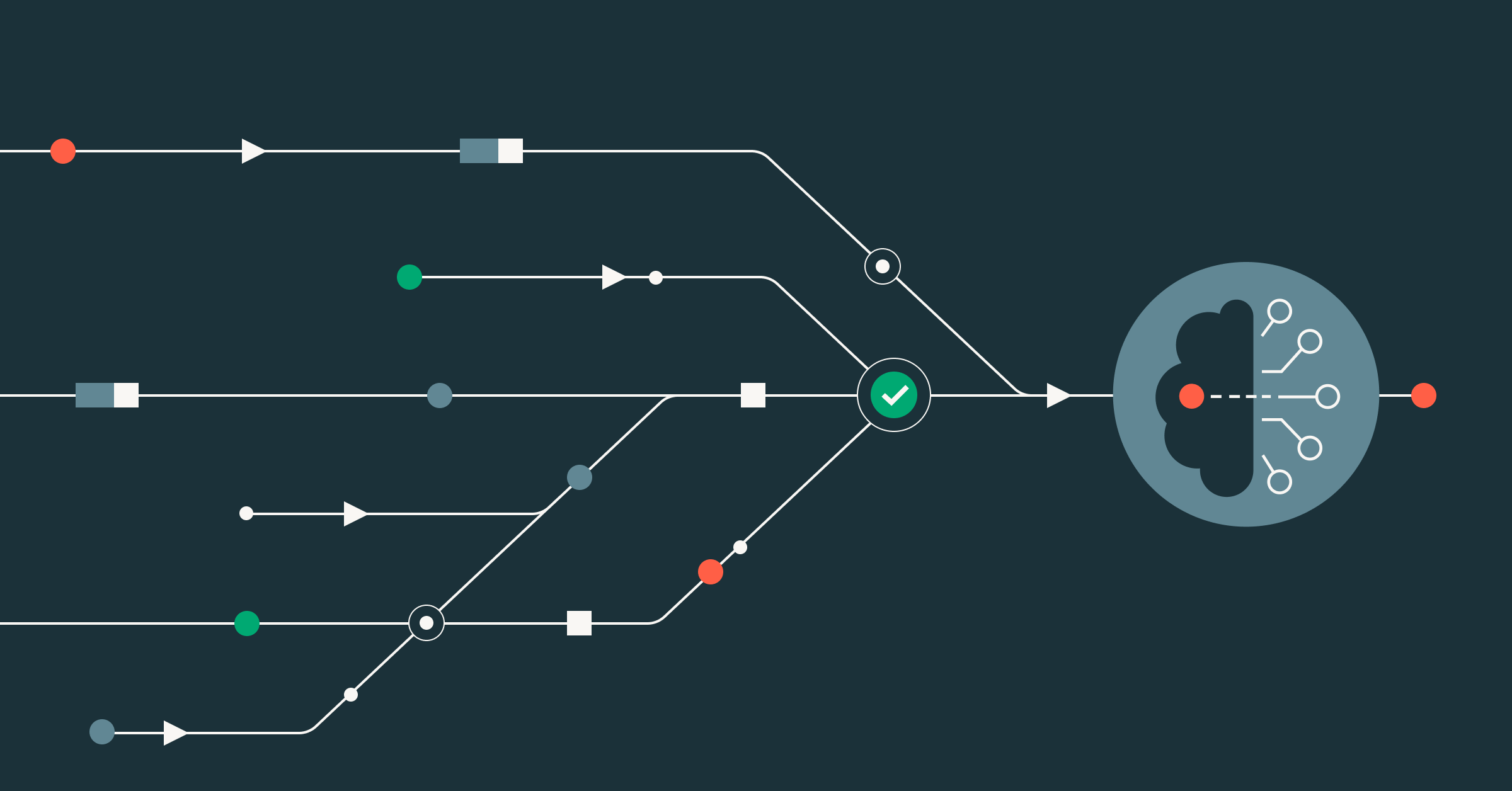Building The Foundation for High-Quality AI Agents
How a unified data and AI platform can solve common AI adoption challenges

Summary
- The real value of AI comes when organizations train AI agents to understand and reason in their specific domains.
- The data needed to do this is often trapped in proprietary systems, and fragmented governance is creating data silos.
- With a unified data and AI platform, companies can eliminate these barriers to move AI agents from experimentation to production.
The Need for a Unified Data and AI Platform
At the beginning of the AI boom, enterprises thought of the technology as a standalone product they could bolt on to their legacy solutions. Now, businesses are becoming more strategic with AI use cases and realizing the importance of domain expertise.
To deliver better intelligence and automation, companies need AI agents that can understand and reason in their unique environments. But as more organizations prepare to train AI systems on their own data, many find their data is stuck in proprietary systems. These silos are quickly undermining AI adoption and posing a significant threat to competitive edge.
Beyond data, fragmented governance frameworks and disjointed AI tooling are also quickly creating new operational barriers that impact agent performance.
How can enterprises rethink their AI strategies?
In the recent webinar, Smashing Silos: Driving Data Intelligence for Enterprise AI, Databricks Co-founder and SVP of Field Engineering Arsalan Tavakoli (Co-founder and SVP of Field Engineering, Databricks), Irfan Khan (President and Chief Product Officer of Data and Analytics, SAP) and Suresh Kaudi (Senior Information Officer, The World Bank) discussed the challenges to AI agent adoption, and how a unified data and AI platform can enable faster time to value.
Here are the key takeaways:
Building a Strong AI Infrastructure for Domain-Specific AI Agents
Rethinking the data layer of your AI strategy
Enterprises remain excited about AI’s potential. Companies are doing many “proofs of concept,” but still struggling to deploy AI agents into the real world. And now, CFOs are starting to ask: “Where’s the value?
The key to getting back on the path to production is to refocus on the data layer. In the past, it was expensive and time-consuming for internal specialists to gather the data the business needed. Increasingly, organizations are investing in open, unified platforms to eliminate silos and enable more seamless sharing of assets across the enterprise.
For example, SAP serves as the operational backbone for many of the world’s most prominent businesses. And for AI agents to be effective, they need access to that information. In the past, enterprises had to rely on expensive workarounds to move data out of SAP systems. But on Databricks Data Intelligence Platform, they can easily combine SAP assets with the rest of the estate to train high-quality, domain-specific AI agents.
Finding the balance of AI quality and cost
It also takes more than raw data to truly productionize AI accurately and trustworthily. Companies need to consider governance, evaluation, observability, and other components that together make up agentic AI systems.
During the webinar, Tavakoli highlighted three key challenges:
- Deciding what ‘good’ looks like: As AI agents move to more complex work, organizations must define what it means for the system to perform appropriately.
- Understanding the system: Agentic AI systems have many interdependent parts. Companies have to learn how to manage all these components to influence end performance.
- Balancing between quality and cost: Enterprises need to make trade-offs between accuracy and cost depending on the use case.
With a cohesive technology ecosystem, it’s easier to navigate each of these steps and ultimately build and scale the high-quality, domain-specific AI agents that enterprises want.
For example, the World Bank broke down its data silos by connecting the various sources into Unity Catalog, which also provides access controls, security, and governance for the centralized repository of data. As a result, AI agents can provide intelligence that would have taken six months for an analyst to do, according to Kaudi.
To learn how your enterprise can transition from general-purpose to specialized systems, check out the full conversation: Smashing Silos: Driving Data Intelligence for Enterprise.
Never miss a Databricks post
What's next?

Product
August 30, 2024/6 min read
